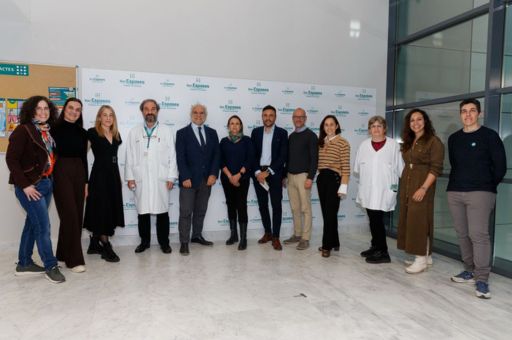The Regional Ministry of Health organised the CONFERENCE ‘Rare Diseases: Recognise Them, Change Lives’ on the occasion of World Rare Disease Day, which is being held on 28 February, and which was attended by around 100 people.
The Rare Diseases Population Register of the Balearic Islands includes data on 32 minority diseases in its latest report.
Rare, infrequent or minority diseases affect fewer than 5 out of every 10,000 inhabitants. However, their impact on health systems is very important, if we take into account that there are between 6,000 and 8,000 rare diseases described that may affect globally 7% of the world’s population.
TDB keeps you informed. Follow us on: Facebook, Twitter and Instagram
Almost 2,000 people suffer from a rare disease in the Balearic Islands
The Population Register of Rare Diseases of the Balearic Islands, which is attached to the Directorate General of Public Health, includes in its latest report data on 32 minority diseases, such as Tetralogy of Fallot, congenital hypothyroidism, Kawasaki Syndrome, Familial Mediterranean Fever, Andrade Syndrome, Leber’s Optic Neuropathy and Primary Biliary Cirrhosis, among others.
They affect a total of 1,937 people, approximately 50% men and 50% women, although according to estimates, there may be around 3 million people in Spain with one of these diseases, which would mean that in the Balearic Islands, there could be around 80,000 people affected.
The Regional Ministry of Health organised the CONFERENCE ‘Rare Diseases: Recognise them, Change Lives’ this Thursday at Son Espases Hospital, as part of World Rare Disease Day, which is being celebrated this Friday, 28 February.
The meeting, which was attended by health professionals, specialists and patient associations, brought together around one hundred people and focused on early diagnosis and the need to improve health professionals’ knowledge of these diseases.
Joan Simonet, Director General of Benefits, Pharmacy and Consumer Affairs, Cristina Granados, Managing Director of Son Espases University Hospital, Gabriel Rojo, Deputy Director of Humanisation, User Care and Training of the Balearic Islands Health Service, and Mª Teresa Bosch, Coordinator of the Balearic Islands Minority and Complex Diseases Strategy, opened the CONFERENCE.
Objectives of the CONFERENCE
The aim of the talks was for health professionals to be aware of minority diseases in their consultations to reduce the waiting time for patients to be diagnosed, improving the approach to the disease and leading to an improvement in the quality of life of the people affected.
The CONFERENCE began with a round table, moderated by M. Teresa Bosch, coordinator of the Strategy for Minority and Complex Diseases of the Balearic Islands, which presented the preliminary results of a study that assesses the knowledge and training needs of health professionals in primary care in the Balearic Islands of Mallorca, on minority and complex diseases.
The second round table, moderated by Estefanía Serratusell, deputy director of Chronic Care, Social and Health Coordination and Rare Diseases of the IB-Salut, aimed to make these diseases visible and give voice to the experiences of the people affected.
IdISBa
Among the organisations that took part in this talk was the AEBA association, and the Balearic Association of Andrade’s Disease. Transthyretin variant amyloidosis (ATTR), also known as Andrade’s disease, is an endemic hereditary disease endemic to the Balearic Islands. In this pathology, the transthyretin protein accumulates in various organs, with the heart being one of the most affected, leading to progressive heart failure and even death.
Last year, Idisba, the Illes Balears Health Research Institute, obtained 500,000 euros to research this rare and endemic disease in the Balearic Islands thanks to the collaboration between the Balearic Research Group on Genetic Cardiopathies, Sudden Death, TTR Amyloidosis, led by Dr. Tomás Ripoll, from the Son Llàtzer University Hospital, and the Health Genomics Group, led by Dr. Damià Heine, from the Son Espases University Hospital, both from Idisba.
